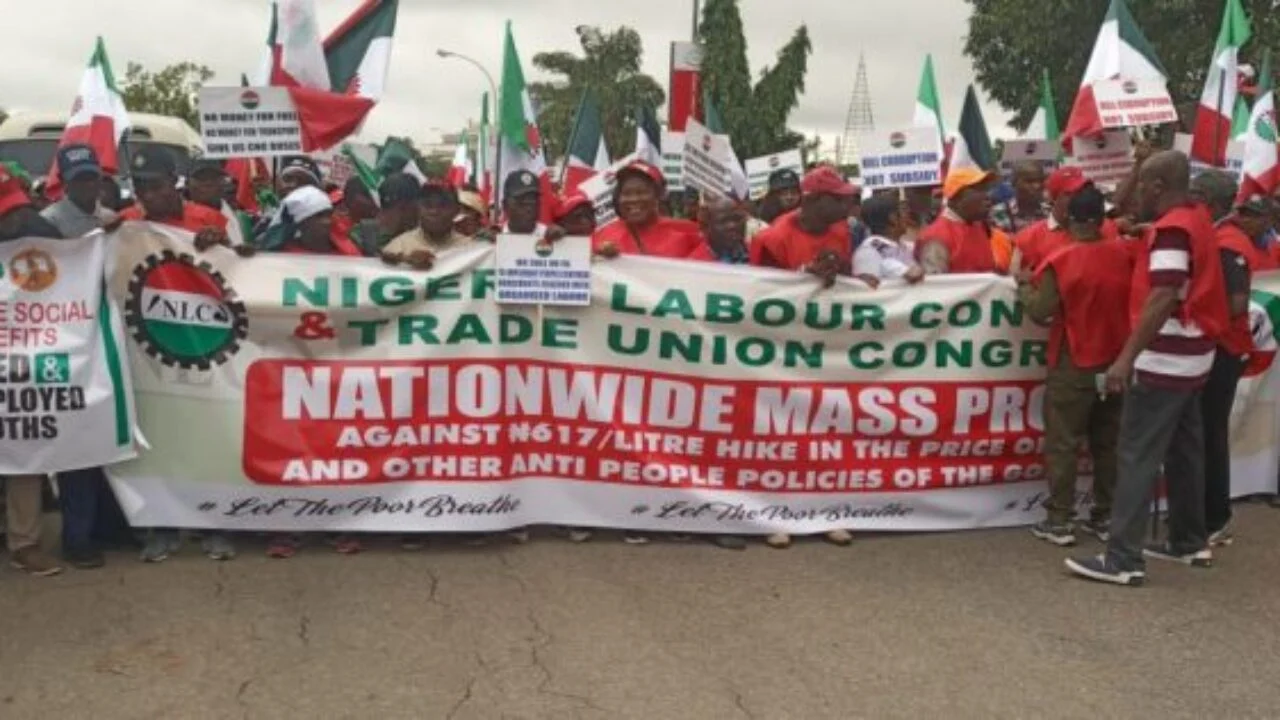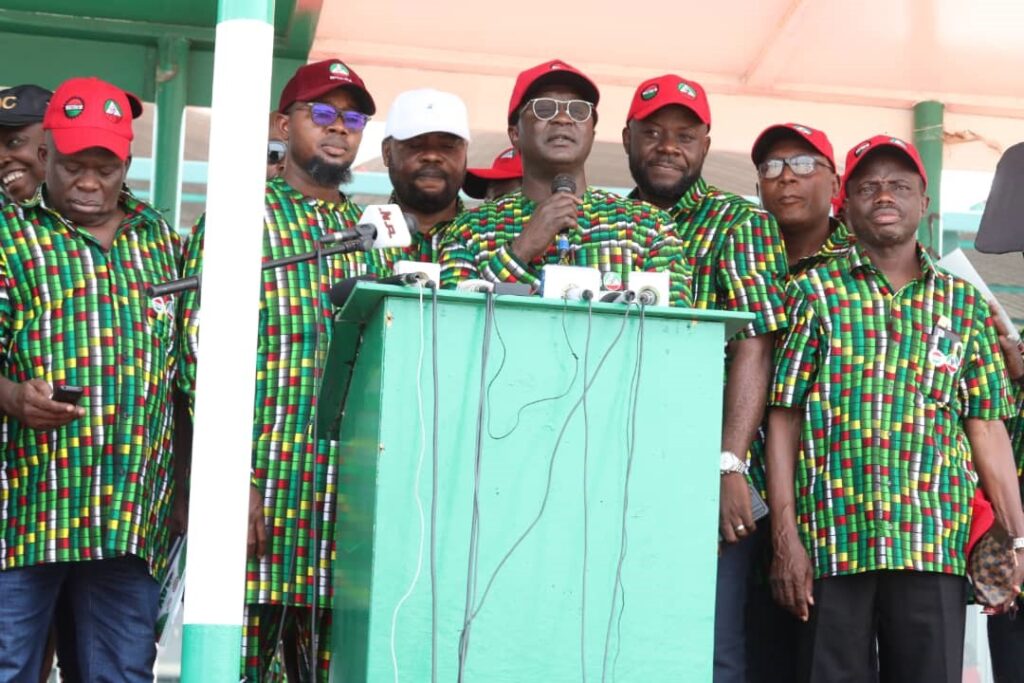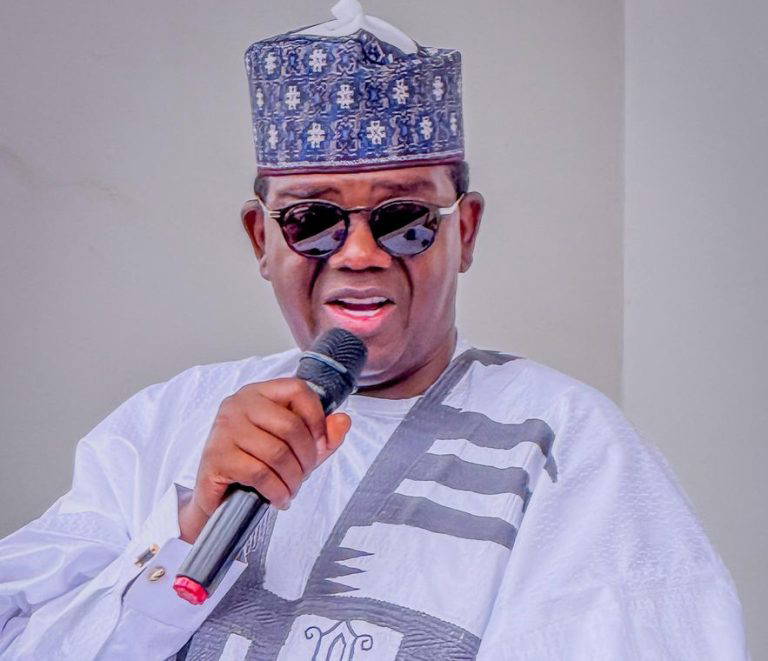The Nigeria Labour Congress (NLC) stands as a beacon for workers’ rights and trade unionism in Nigeria. Founded in December 1978, the NLC serves as an umbrella organization for trade unions across the nation. With its headquarters in Abuja, the NLC boasts a membership of approximately 4 million individuals, making it one of the largest labor unions in Africa. The current leadership includes Comrade Ayuba Wabba as President and Emmanuel Ugboaja as General Secretary. The NLC is affiliated with the International Trade Union Confederation (ITUC) and continues to play a pivotal role in advocating for the rights and welfare of Nigerian workers.
The NLC emerged from the merger of four different trade union organizations: the Nigeria Trade Union Congress (NTUC), Labour Unity Front (LUF), United Labour Congress (ULC), and Nigeria Workers’ Council (NWC). The formation of the NLC was influenced by the Federal Military Government under Murtala Mohammed, which sought to streamline and control the trade union movement. The government established the Adebiyi Tribunal to investigate trade union activities, leading to the restructuring of approximately 1,500 affiliated unions into 42 industrial unions and 19 senior staff unions. This restructuring aimed to create a unified and efficient labor organization, with Wahab Goodluck serving as its founding president.
Throughout its history, the NLC has faced significant challenges, particularly under Nigeria’s military regimes. The NLC’s national organs were dissolved twice, first in 1988 under General Ibrahim Babangida and again in 1994 under General Sani Abacha. Labor leaders were frequently arrested, and union meetings were disrupted. Despite these setbacks, the NLC persisted and continued to advocate for workers’ rights. In January 1999, following democratic reforms, many anti-union regulations were abolished, allowing the NLC to operate more freely. Adams Oshiomhole was elected President of the reformed organization, leading it through a period of renewed activism.
One of the NLC’s most significant struggles occurred in the early 2000s when it opposed the government’s decision to increase fuel prices by reducing subsidies and deregulating the fuel market. This led to several general strikes and nationwide protests, highlighting the NLC’s ability to mobilize workers and influence government policy. In September 2004, the NLC issued an ultimatum to the federal government to reverse a controversial fuel tax, leading to a strike threat despite a court ruling that the NLC lacked the legal power to call a general strike over government policies.
The NLC’s activism continued into the 2010s, with one of its strongest protests occurring in January 2012 during President Goodluck Jonathan’s administration. The government’s decision to remove fuel subsidies led to widespread protests, paralyzing the nation’s economy for several days. The protests culminated in a government concession to subsidize fuel prices, demonstrating the NLC’s significant impact on national policy.

As of 2024, the NLC continues to assert its influence, with its latest action being an impending nationwide strike over the failure of the government to agree on a new national minimum wage and the recent hike in electricity tariffs. Less than 24 hours before the start of the strike, the NLC directed its state councils to ensure total compliance. This action has garnered support from unions in critical sectors such as oil, electricity, and finance, signaling a unified front.
The strike, declared by both the NLC and the Trade Union Congress of Nigeria (TUC), follows the government’s failure to negotiate a new national minimum wage by the May 31 deadline, a date set by labor leaders during Workers’ Day celebrations. Despite several meetings, the tripartite committee on the new National Minimum Wage failed to reach a decision, prompting labor leaders to walk out in protest.

The government’s offer of N60,000 was deemed insufficient by labor leaders, who walked out of meetings three times in rejection. The old minimum wage of N30,000, signed into law by former President Muhammadu Buhari, expired on April 18, 2024, further intensifying the urgency for a new agreement.
In recent years, the NLC has also engaged in the political arena. In the 2023 Nigerian general election, the NLC, together with the Trade Union Congress of Nigeria, supported Peter Obi and the Labour Party, marking the first time the union explicitly endorsed a political party. This endorsement highlights the NLC’s evolving role in shaping Nigeria’s political landscape.
The NLC has also made strides in promoting gender equality within the labor movement. The National Women’s Commission, established in 2003, aims to increase women’s participation in the union’s affairs. State branches of the NLC have women’s committees, and the head of the National Women’s Commission serves as a Vice-President of the NLC. The current president of the National Women’s Commission is Comrade Rita Goyit. The women’s wing engages in rallies and protests to support women’s rights and combat gender-based violence, reflecting the NLC’s commitment to inclusivity and social justice.
The Nigeria Labour Congress remains a formidable force in the fight for workers’ rights in Nigeria. Its history of resilience, activism, and advocacy underscores its critical role in the nation’s labor movement. As it continues to navigate the challenges and opportunities of the 21st century, the NLC’s dedication to protecting and advancing the interests of Nigerian workers remains unwavering.
Sources




